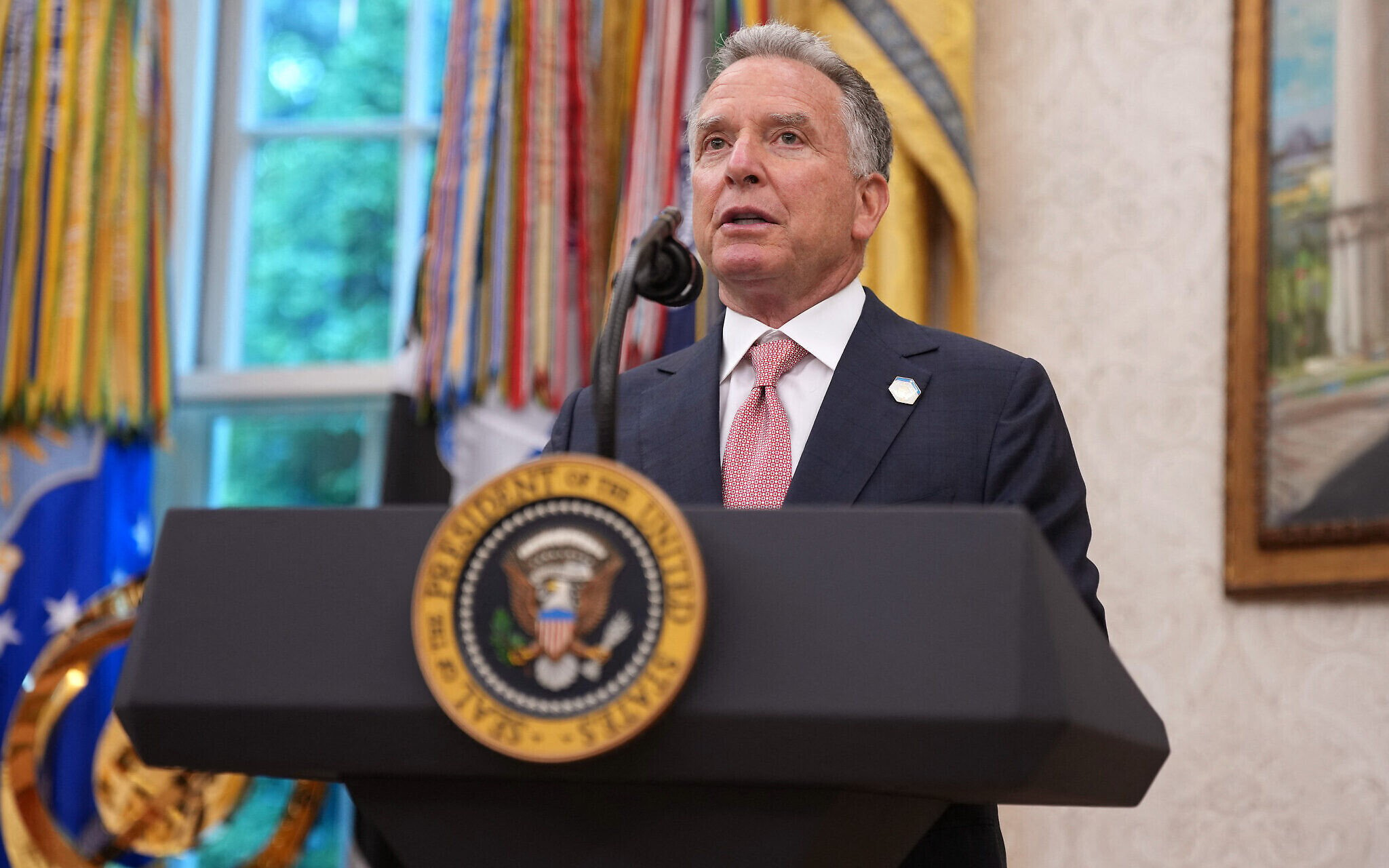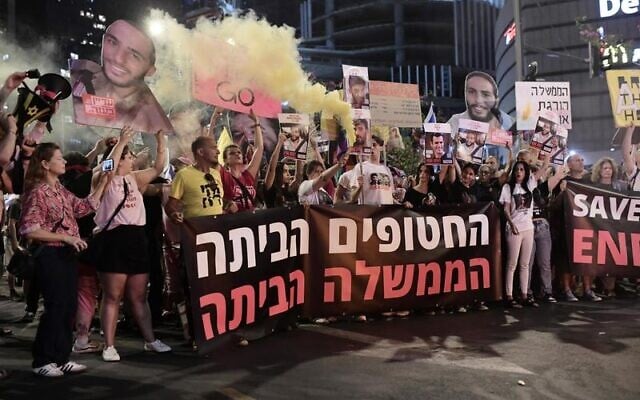



Hamas on Saturday responded to US special envoy Steve Witkoff’s latest proposal for a hostage and ceasefire deal in Gaza with amendments and demands, leading the mediator to blast the stance as one that is “totally unacceptable and only takes us backward.”
A Hamas official, speaking to the Associated Press on condition of anonymity due to the sensitivity of the talks, said proposed amendments focused on “US guarantees, the timing of hostage release, the delivery of aid and the withdrawal of Israeli forces.”
A source directly involved in the negotiations told The Times of Israel that Hamas’s response included a demand that would make it more difficult for Israel to resume fighting if talks on a permanent ceasefire are not completed by the end of the 60-day truce. The updated proposal submitted by Hamas envisions the release of the 10 hostages being spread out more throughout the 60-day truce, rather than in two batches on the first and seventh day, as the US offer envisioned.
The source said this change was aimed at preventing Prime Minister Benjamin Netanyahu from abandoning talks on a permanent ceasefire after the 10 hostages are released or refusing to engage in them altogether, as he did during the previous ceasefire in January.
An Israeli official told The Times of Israel that Hamas had also requested a ceasefire lasting up to seven years.
Witkoff said: “Hamas should accept the framework proposal we put forward as the basis for proximity talks, which we can begin immediately this coming week.”
He added: “That is the only way we can close a 60-day ceasefire deal in the coming days, in which half of the living hostages and half of those who are deceased will come home to their families, and in which we can have at the proximity talks substantive negotiations in good faith to try to reach a permanent ceasefire.”
The proposal stipulated that the parties would have to reach an agreement on the parameters of Israel’s partial withdrawal from Gaza during the 60-day truce. It also provided for further negotiations during the truce on a potential settlement to end the war.
An Israeli official told reporters on condition of anonymity that Jerusalem was treating Hamas’s response to the proposal as an “effective rejection.”

The latest US proposal was sent to Hamas earlier this week after Israel’s lead negotiator, Strategic Affairs Minister Ron Dermer, signed off on it.
Arab mediators are still working with the group to soften some of the edits it demanded, a source involved in the process told The Times of Israel.
In a statement on Saturday, Hamas said it seeks a permanent ceasefire and a comprehensive Israeli withdrawal from Gaza — demands the Israeli government has largely rejected at this stage — and an ensured flow of aid.
Channel 12 reported that Israeli officials involved in talks told families of hostages on Saturday that, if carried out, the Witkoff proposal would ultimately lead to the release of all hostages held by Hamas, and would not be only a partial deal for some of the hostages.
There are currently 58 hostages held in Gaza, including the bodies of at least 35 confirmed dead by the IDF, and 20 hostages who are believed to be alive. There are grave concerns for the well-being of three others, Israeli officials have said.
On Friday, US President Donald Trump had said that mediators were “very close” to reaching a deal between Israel and Hamas. “We’ll let you know about it during the day or maybe tomorrow, and we have a chance of that,” Trump told reporters in the Oval Office.
Asked later Friday if he thought Hamas would accept the proposal, Trump said, “I think they want to — they want to get out of that mess.”
Sources familiar with the negotiations told The Times of Israel that Hamas was disappointed with the proposal, since it still gives Israel the option to resume fighting at the end of the temporary truce.
While Netanyahu told hostage families on Thursday that he was principally supportive of the deal on the table, he has yet to bring it before the cabinet to be approved, and several far-right members of his coalition have already come out against it.
Defense Minister Israel Katz said Friday that Hamas must agree to the proposal or be destroyed. “The Hamas murderers will now be forced to choose: accept the terms of the ‘Witkoff Deal’ for the release of the hostages — or be annihilated,” he said.
Israel has repeatedly said that the destruction of the terror group was a key aim of the war.
Negotiations to end nearly 20 months of war in Gaza have so far failed to achieve a breakthrough, with Israel resuming operations in March following a short-lived truce. Conditions on the ground for Gaza’s civilians are dire, with the United Nations warning that the entire population is at risk of famine.
According to a copy of Witkoff’s latest proposal, the authenticity of which was confirmed to The Times of Israel by two sources familiar with the negotiations, Hamas would release 10 living Israeli hostages held in Gaza and return the bodies of 18 deceased hostages during a 60-day ceasefire.
In return, Israel would release 125 Palestinian terror convicts serving life sentences, 1,111 Gazans detained since the start of the war on October 7, 2023, and 180 bodies of Palestinians currently held by Israel.
The IDF would also pull back from some areas where troops are currently deployed; the parameters of the pullback would be finalized “during proximity negotiations.”
In its own response to Hamas, the Prime Minister’s Office said: “While Israel has agreed to the updated Witkoff framework for the release of our hostages, Hamas continues to cling to its refusal.”
Echoing Witkoff’s statement, the PMO said, “It is unacceptable and sets the process back.”
“Israel will continue its efforts to bring our hostages home and to defeat Hamas,” it said.
Foreign Minister Gideon Sa’ar declared that Hamas is responsible for the continuation of the war.
“Hamas initiated this war with the 7/10 massacre [and] is responsible for its continuation by refusing to release our hostages and disarm,” Sa’ar wrote in an English-language post on X.
“If France and the UK want to reach a ceasefire, pressure should be put on Hamas that continues to say No, instead of attacking Israel, which says Yes,” he added, referring to the increasing criticism from Europe over the war.
Agencies contributed to this report.
